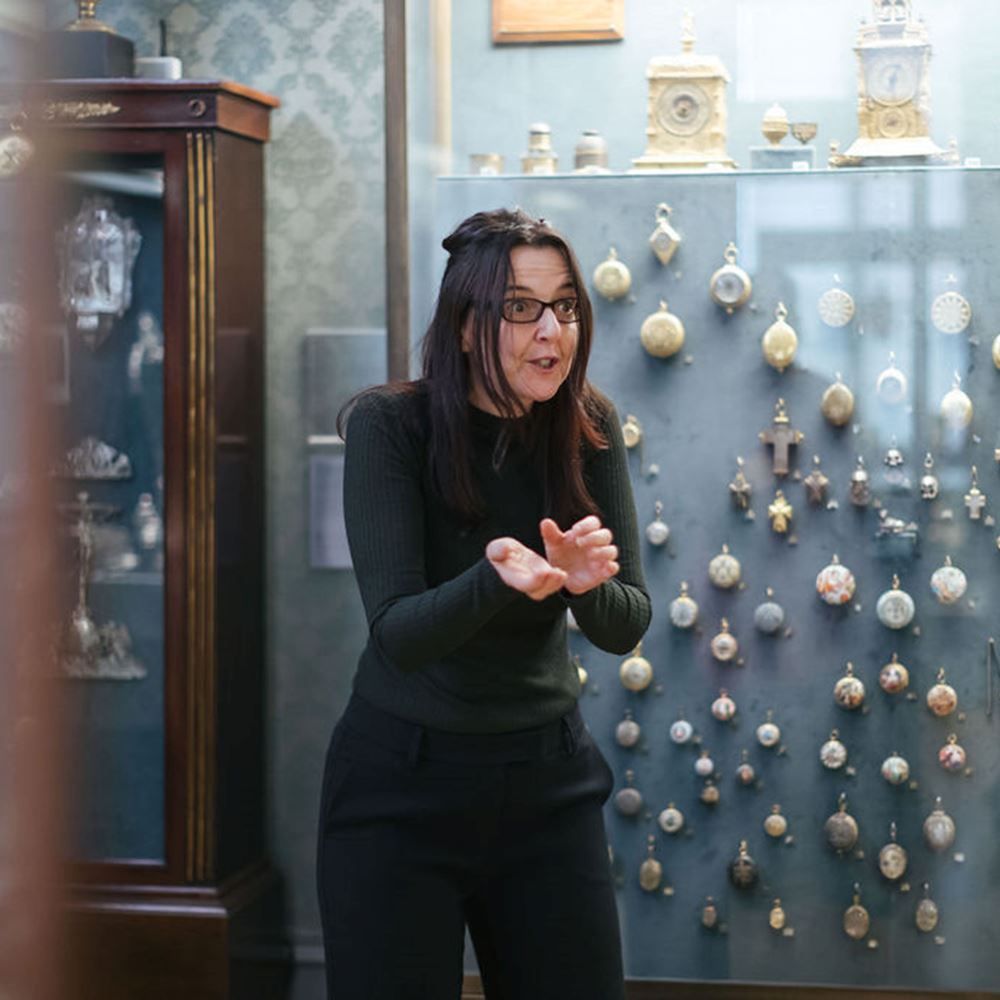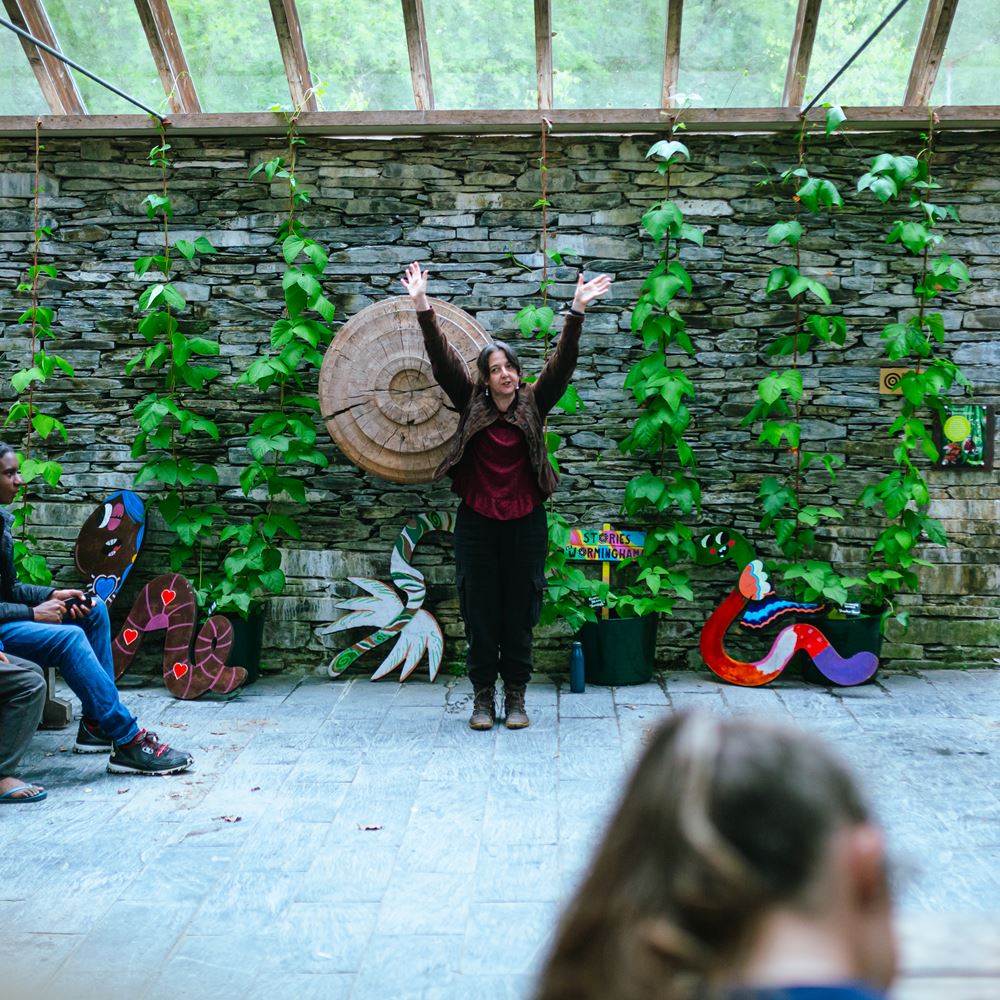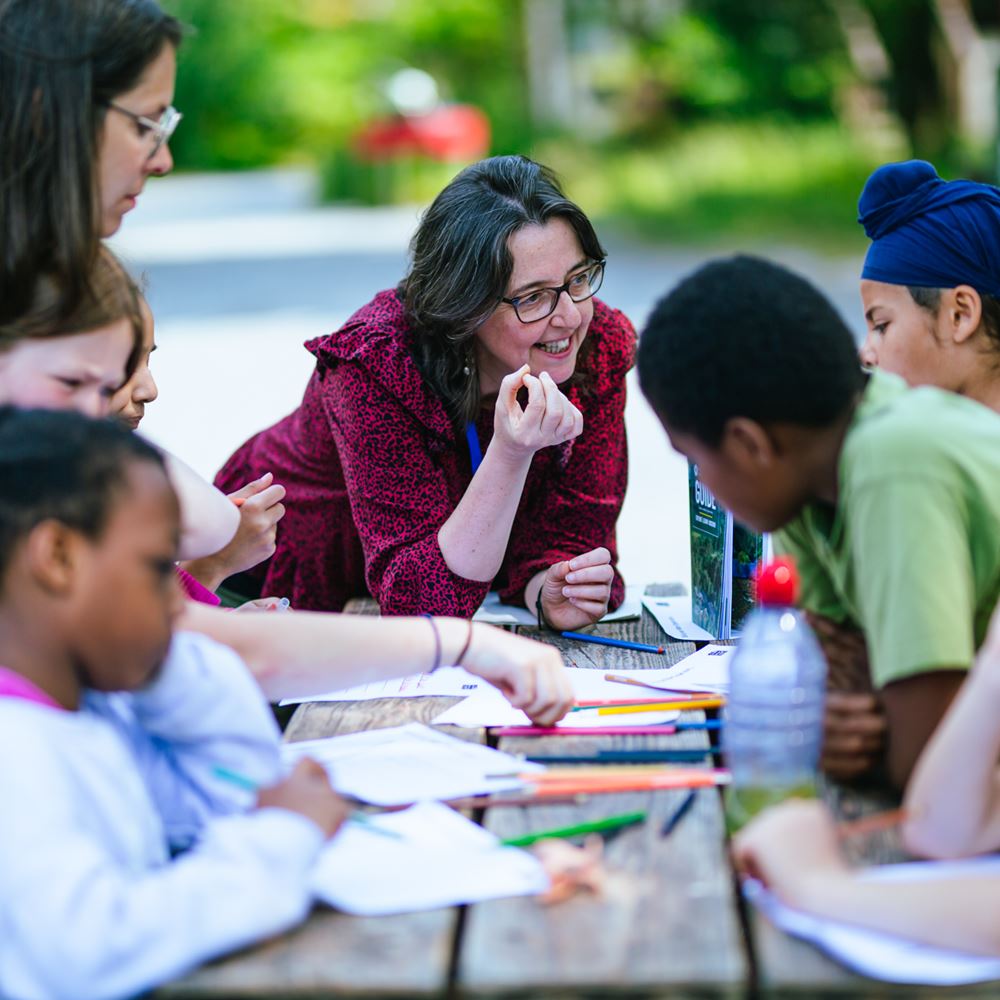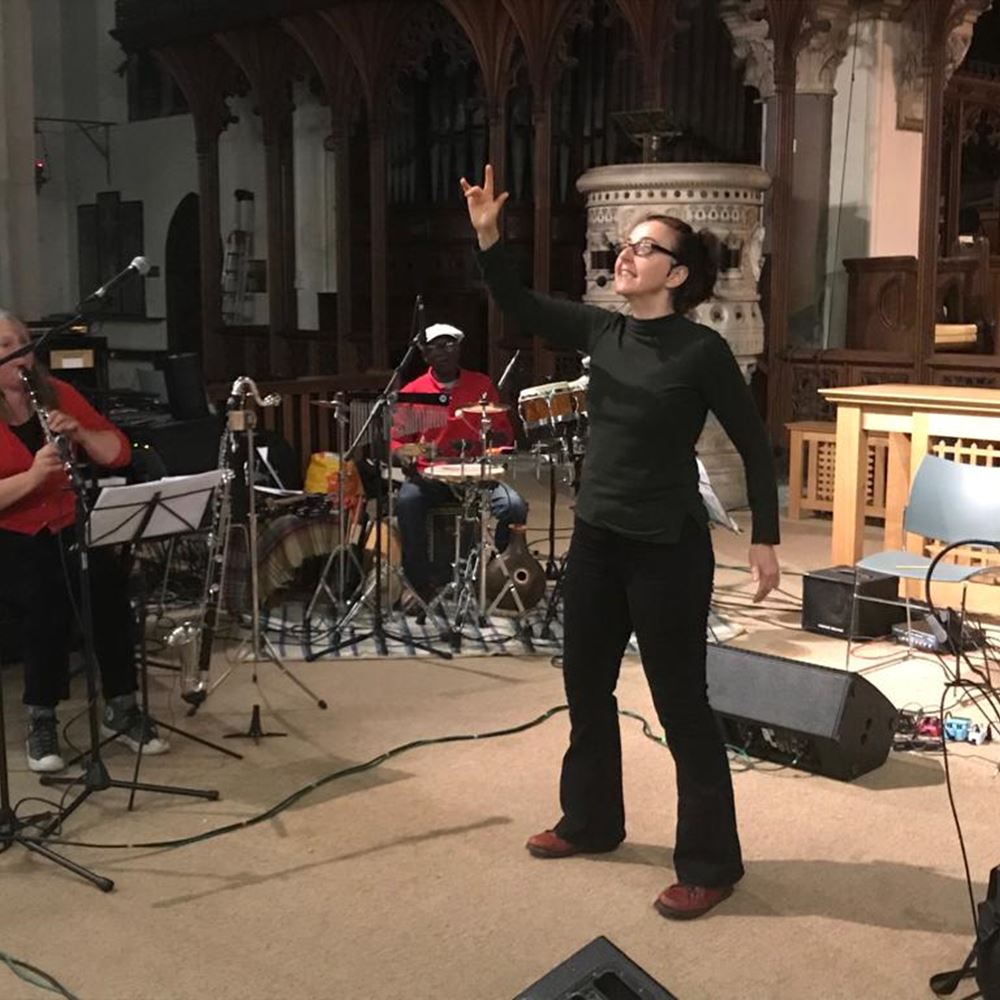
Wednesday, 24 January
Artist Interview
National Storytelling Week
In celebration of National Storytelling Week 2024, we chatted with storyteller and performance artist, Pyn Stockman all about their new work and the importance of storytelling for all ages.
Could you tell us a bit about you and your work?
Hi, I’m Pyn and I’m a performance storyteller who also leads creative workshops and projects.
I live on a boat on the small wilds of the West Midlands canal network but I grew up on a council estate in Luton. I’m fascinated by old folk tales, story and playful retellings mixed with folklore, tree lore and the more-than-human gaze. I’m currently brewing two projects Story-Tea and Urban Forest Voices. I’m the co-artistic director of Secret City Arts and I work regularly with musicians, sound designers and visual artists, and I really enjoy collaborating with communities.
I perform folk and fairy tales, myths and legends and am inspired by stories from all around the world.
I work with adults, young people and children to become storytellers through playful training and creative workshops and lead storytelling sessions to inspire performance-making, creative writing/story-making and wellbeing.
I’ve got a background in drama and theatre and once upon a time, I trained as a mask maker all of which feed into my storytelling work.

What or who is the inspiration for your storytelling?
I’ve always loved listening to stories – My Dad used to tell me stories about "the olden days” when I was little. I had a tape of fairy tales spoken by him and my Mum and further tapes of me telling stories. I think that these experiences are one of the reasons that I like to work with groups to record stories.
Working with traditional material and pursuing it as an art form was prompted by a project with a Coventry school through Warwick Arts Centre’s education department. I was a resident in the school one day a week for a year leading dramatic storytelling sessions across KS1 telling and retelling traditional material. I was hooked. I wanted more and I wanted to learn. I’ve taken courses with Shonaleigh Cumbers, Ben Haggarty, Nell Phoenix and Michael Harvey; they’re all awesome.
It’s been 10 years since that storytelling residency in a school and I’ve delighted in every step of the way from there to here.
Today my direct creative inspiration comes a lot from the natural world including the wild green spaces in the urban environment. I enjoy exploring the work of Katharine Briggs and Ruth Tongue (who collected English Folk Tales) but I am inspired by stories from all over the world.

Do you think storytelling is suitable for all audiences?
Definitely! We are all storytellers. We do it every day of our lives. Every time you share one of your experiences with someone you are telling a story and all the skills a professional storyteller has are the same - just refined and practiced.
Why do you think storytelling is an important art form?
I think all art forms and opportunities to be creative are important! Like storytelling they can help us make sense of the world, come up with solutions, develop skills, confidence and have lots of fun doing it.
Storytelling works with material that's been around for years! Stuff that was considered important enough to be remembered long before it was written down. It's ancient and yet the stories and the themes are still relevant today.

What interests you most about working within communities?
I like to collaborate and I think that everyone has a story to tell a story. People interest me. It's a privilege being invited to run a workshop; to share a bit of what you do and to listen and enable others to share what interests them. I often find in workshop sessions that there are already a lot of skills and it’s always great to hear new ideas.
What qualities does a good storyteller need?
Openness, a sense of fun, willingness to not be word perfect, to take time to get to know the story and the people in it. And not to be afraid if the traditional material needs a bit of a re-think because it has some outdated concepts.
Stories always shifted and changed with oral re-tellings. The story will let you know if what you are trying to do with it won’t work. There are lots of ways to learn a story and everyone will have their own slightly different process and that’s great.

For more information about Pyn's upcoming performances of Tell It To The Bees with Live & Local please click here.
We'd like to thank Pyn for this interview.
You've been added to the mailing list.
